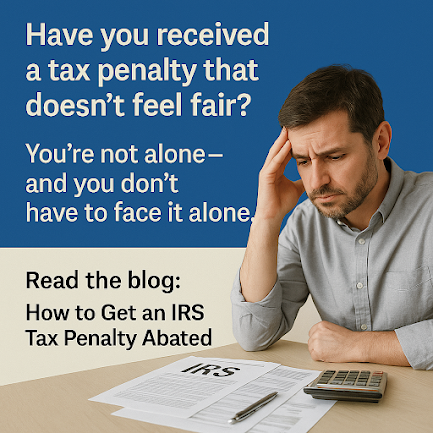Receiving an IRS penalty notice can be stressful, even overwhelming. Many taxpayers experience frustration and anxiety over the added financial burden. However, there’s hope and relief available—especially if the penalty was imposed due to circumstances truly beyond your control. In such situations, requesting an abatement through “reasonable cause” can provide both peace of mind and significant financial relief. Knowing you have the right to present your case and potentially reduce or remove the penalty can replace anxiety with a sense of empowerment.
The IRS understands that life doesn’t always go according to plan. Unforeseen events, like serious illness, natural disasters, or unavoidable errors, can result in missed tax deadlines or mistakes. That’s why the IRS allows taxpayers to request penalty abatement for “reasonable cause.” If you can demonstrate that you acted responsibly and that the failure to comply was due to circumstances beyond your control, you may qualify for relief.
To request abatement, you’ll need to explain your situation in detail, provide supporting documentation, and submit your request to the IRS. Each case is reviewed individually. If approved, the IRS can reduce or eliminate the penalty, lightening your financial load and reducing stress.





